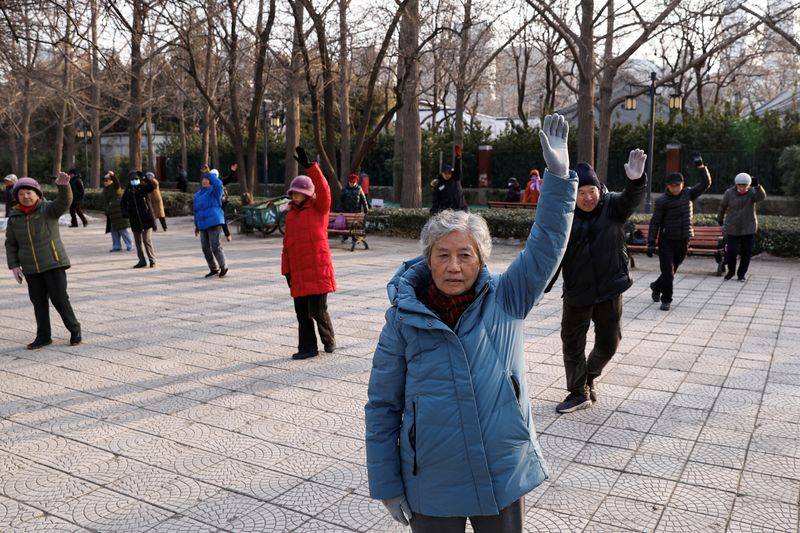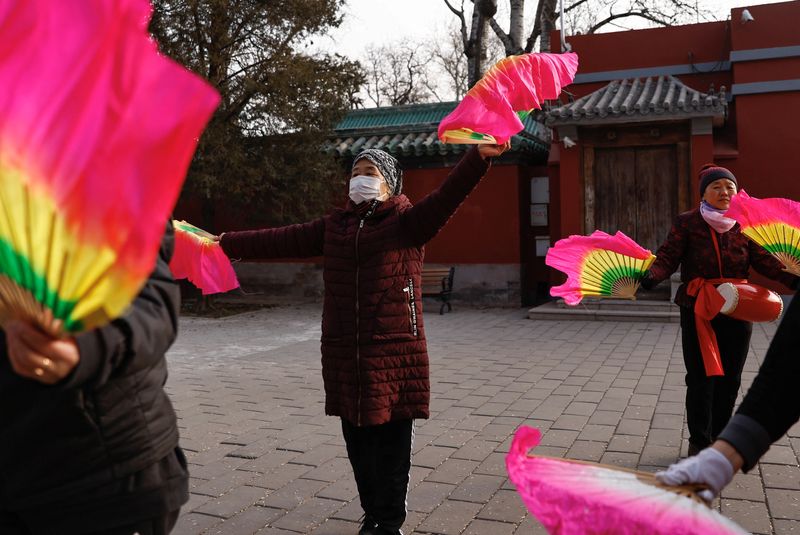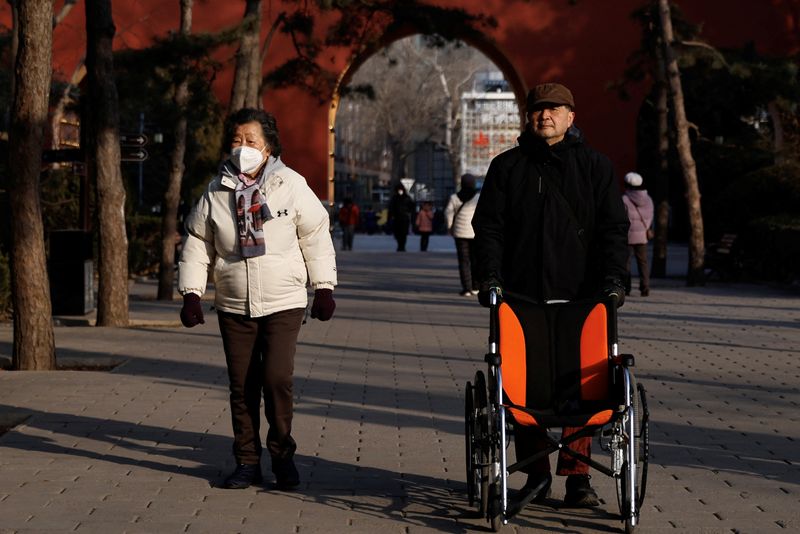By Farah Master
HONG KONG (Reuters) – China’s ageing population threatens key Beijing policy goals for the coming decade of boosting domestic consumption and reining in ballooning debt, posing a severe challenge to the economy’s long-term growth prospects.
China’s population aged 60 and over reached 296.97 million in 2023, about 21.1% of its total population, up from 280.04 million in 2022, and there are widespread concerns that its pension system cannot keep up without significant reform as the country rapidly ages.
HOW DOES CHINA’S PENSION SYSTEM WORK?
China’s pension system is made up of three pillars, including the basic pension system, led by the state.
The second is a voluntary employee pension plan from employers, and the third is private voluntary pension schemes.
Both the corporate and private schemes remain underdeveloped, say academics, while the public scheme is already under significant financial pressure. It is mostly administered at a provincial level rather than as a nationwide scheme.
Governments in the north of the country have the biggest pension deficits because of weaker economies and large population outflows over the years.
China created a special fund in 2018 to shift pension funds from richer coastal provinces like Guangdong to places like Heilongjiang and Liaoning, to tackle cross-country disparities.
About a third of the China’s provincial-level jurisdictions are running pension deficits. The state-run Chinese Academy of Sciences sees the state pension system running out of money by 2035.
China’s public pension expenditure is already more than 5% of its gross domestic product, according to pension experts.
WHEN DO CHINESE COLLECT A PENSION?
Chinese citizens get their pension once they retire, at age 60 for men, 55 for white-collar women and 50 for women who work in factories.
Yet China’s life expectancy has risen from around 44 years in 1960 to 78 years as of 2021, higher than in the United States, and is projected to exceed 80 years by 2050.
More than 20% of China’s 1.409 billion people are over 60 years old.
China has the largest social security system in the world, with about 1.05 billion people paying into or receiving payments from its national basic pension at the end of 2022, according to state media.
The average monthly pension payment in China in 2020 was around 170 yuan ($23.62), according to the U.N.’s International Labour Organization.
In the U.S., the government-funded social security programme paid an average of $1,907 per month as of January 2024.
The average American worker earns more than triple the wages of the average Chinese worker, but that still leaves a major gap in retirement benefits.
DOES CHINA PLAN TO REFORM ITS PENSION SYSTEM?
China’s state council unveiled a blueprint in 2022 to bolster support for its greying population, including increasing the number of nursing homes and introducing a new private pension scheme to make it easier for people to invest in a range of financial products.
However, pension system reforms have been slow.
China announced in 2020 and 2021 in official policies that the statutory retirement age would be raised, but no further details have been announced.
Many citizens have expressed anger and anxiety at any potential change on social media, citing a difficult working environment currently, with high unemployment.
Ten working-age Chinese supported 1 retiree in 2002, with the ratio falling to 5 in 2021. The ratio is forecast to drop to 4 in 2030 and 2 in 2050, said Larry Hu, chief economist at Macquarie.
($1 = 7.1960 Chinese yuan renminbi)
(Reporting by Farah Master; Editing by Jamie Freed)


